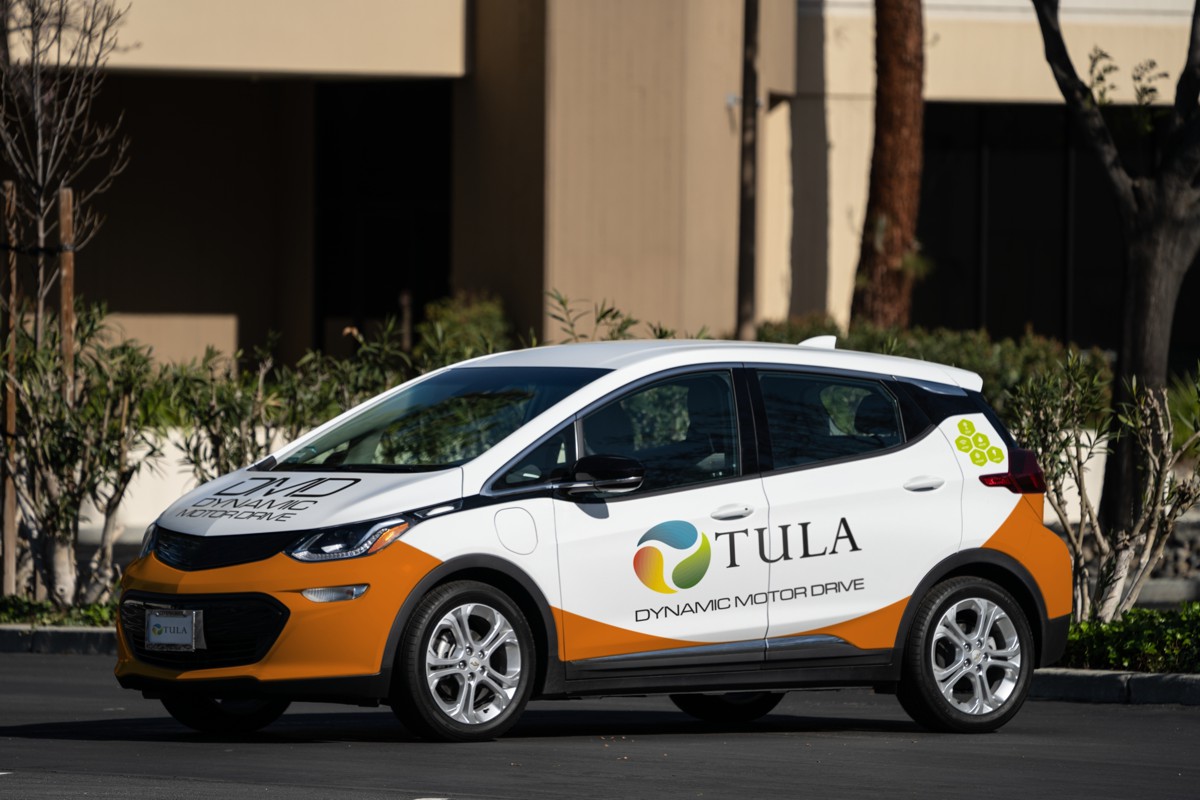Tula DMD tech reduces Rare Earth Materials and improves Electric Motor efficiency
Tula Technology, Inc., a leader in propulsion efficiency, reported today at the International Vienna Motor Symposium that their product Dynamic Motor Drive (DMD™) mitigates efficiency losses of electric motors while significantly reducing reliance on rare-earth materials.
DMD’s application to electric vehicle motors has the potential to increase range while using less energy.
Improving the efficiency of the powertrain is key to reducing the energy consumed by an electric vehicle.
Electric motors equipped with rare earth magnets can exceed 90% efficiency at peak performance; however, real-world driving conditions often reduce motor efficiency to approximately 70-85%, far below the peak. The patented DMD pulse density strategy mitigates efficiency losses through improvements in control software.
Tula has simulated the DMD concept and projects efficiency improvements of 2.5% on the Worldwide Harmonized Light Vehicle Test Procedure (WLTP) cycle for an average electric vehicle. These improvements increase driving range while lowering total energy consumed. DMD is cost-effective, software-driven and does not require hardware changes to the motor or vehicle. Additionally, DMD avoids many of the rare earth material challenges including escalating future costs, limited supply and sourcing risks.
R. Scott Bailey, president and CEO of Tula Technology, commente: “By 2040, more than half of all passenger vehicles sold globally will be electric. Tula’s Dynamic Motor Drive technology delivers high-value efficiency improvement to the full spectrum of electrification applications.
“With DMD, we can take a synchronous reluctance motor with low permanent magnet content and increase its efficiency to a level nearly comparable to a full permanent magnet motor. This reduces reliance on rare earth metals, which translates to lower cost and greater supply chain security.
“We are very excited about our DMD results, and our team is ready to work with partners and customers to optimize motor system performance in the transportation, industrial and power generation industries.”
Tula’s first product, Dynamic Skip Fire (DSF®), is an advanced cylinder deactivation control strategy that has been shown to significantly reduce CO2 emissions in gasoline engines and has been in production since 2018 with more than one million vehicles on the road.
As presented jointly with Cummins at the Society of Automotive Engineers World Congress this year, the diesel application of DSF, Diesel Dynamic Skip Fire (dDSF™), was shown to reduce nitrogen oxide emissions by 74% and CO2 emissions by 5% in a Class 8 truck operating in a low-load cycle.
DMD takes Tula’s control strategy to electric motors and has the potential to improve efficiency beyond electric vehicles into other modes of transportation, propulsion, and power conversion.





























